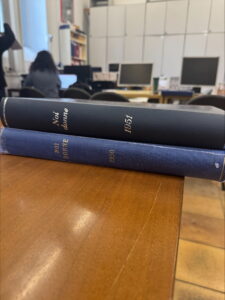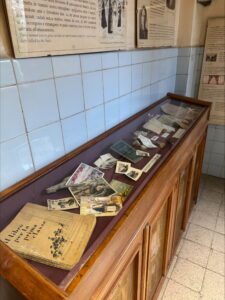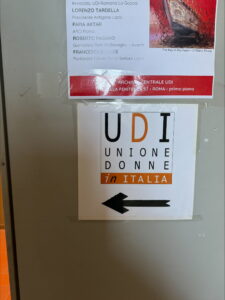Dasha Vayn shares her thoughts on Women’s Participation in the 1948 General Election in Italy
What is your topic and what made you choose it?
Hello! My name is Dasha Vayn and my thesis is on Women’s Participation in the 1948 General Election in Italy. This election was the first national election that allowed women to vote, yet historiography has excluded this fundamental identity of the election in their efforts to highlight the Cold War aspects of the election. My linguistic abilities in Russian, English, and Italian prompted me to choose Italy in this time period where relations between the Eastern bloc and America were influencing politics in Europe. After studying in Italy for a year, I was motivated to pick a topic that involved Italian language as I would be able to utilize my language skills in research and writing. The election’s propaganda initially interested me since fascism’s reminiscence as an ideology, art, and culture is still palpable in Italy. In the process of my research, I learned that Italian women were given their first national vote in the ‘48 election. With this information, my research and writing changed direction and focused on understanding how fascist socialization impacted women’s perspective on the 1948 election.

Have you been able to travel for your research and if so where have you gone and how was the experience
The Chatfield Fund generously sponsored my thesis trip to Rome where I stayed for 10 days. In Rome, I visited the Casa Internazionale delle Donne (the international house of Women), the Biblioteca Moderna e Contemporanea (Modern and Contemporary Library), and the Museo della Resistenza (the Resistance Museum). The traveling not only elevated my scholarships’ sophistication but also allowed me to gain research experience which I did not possess before taking the steps to traveling to Rome. Understanding how to navigate foreign libraries and archives was an essential part to my research and to understanding how historical writing processes look like.

What have been the biggest challenges you have faced so far?
The subject I decided to write about and explore hasn’t been written about by other historians due to negligence concerning gender analysis on the election. I am not able to make arguments against historians’ interpretations on how women participated in the election. Understanding how to formulate my argument and present evidence has been a challenge but one that pushes me to better understand the academic field of history.
What advice would you give to someone currently considering writing a history thesis?
The advice I would give to someone who wants to write a history thesis is take your time and speak to professors during your brainstorming process. I think it is tempting to try to find a subject that no other historian has ever written about, but if there is a period in history that fascinates you, it would be a better decision to pick something that genuinely interests you than picking a topic which might be “novel”. You will be spending so much time not only writing and
researching for your thesis, but thinking about the arguments, primary sources, documents, and books concerning your topic, so it is crucial that you care about what you are writing about.
